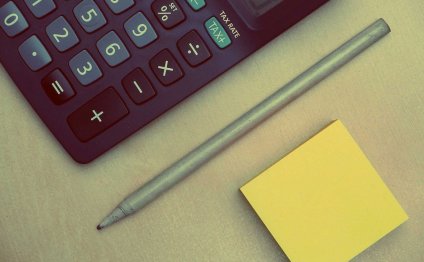
How to study for Financial Accounting?
Succeeding in any field of study requires the use of a solid strategy and accounting is no exception. As an undergraduate student in accounting, I many times had classmates in my accounting courses that would complain about their inability to consistently achieve above average exam grades. In response, I would ask them to outline their strategy for tackling accounting courses. In 9 out 10 cases, they had no clearly defined strategy and that’s exactly what I call a recipe for failure. Successful studies in the field of accounting require a structured approach. While I never did exceptionally well in college, I was however able to do better than average in all my accounting classes because I developed and adopted effective learning habits very early on. Before going any further, I would like to mention that the accounting study tips I am about to share with the whole world are not a one size fits all. You are thereby invited to tweak them as you so fit so you can achieve optimum results. With the disclaimer out of the way, let’s take a look together at the study habits that enabled me to fare better than most throughout each of my accounting classes. These learning habits were organized in four chronological phases: before the lecture, during the lecture, after the lecture, and before the test.
- Before the lecture: Before showing up for every lecture, there were two things that I would do. First, I would read the assigned chapter’s opening story. Reading the opening story was very helpful to me because it enabled me to get a good feel for the issues to be discussed throughout the lecture. The other activity that I completed as part of preparing for the lecture was to print out then read the assigned chapter’s Powerpoint slides hosted on the textbook’s website. If any worked problem was included in the slides, I would make every effort to solve it without looking at the solution. By the time I was finished working with the slides, I had become well acquainted with most of the topics to be covered in the lecture.
- During the lecture: I always made sure to show up for the lecture on time and equipped with the chapter’s PowerPoint slides, the textbook, a basic scientific calculator, a notebook, etc. As I listened to the lecture, I would write anything that the instructor mentioned that was not included in the notes. If the professor singled out topics or types of problems that were highly likely to appear in the exam, I would also write them down. Last but not least, I made every effort to ask questions whenever I felt confused and I could not find the answers in the textbook.
- After the lecture: My first year in college, I had a bad habit of not reviewing my class notes nor completing any additional reading in a timely manner. That strategy seemed to work well until the semester of my Intermediate Accounting I course. The instructor was going through the chapters so fast that my procrastination ended up becoming a serious liability. It didn’t take me too long to realize that a change of strategy was badly needed. It is right then that I decided that I was going to strive as much as possible to review my class notes and complete any further reading within 36 hours of the completion of a class session. Additionally, I committed to working out all chapter assigned problems over the weekend. These small adjustments in my study habits turned out to be very instrumental in helping me turn the semester around after I got off to a bad start in my Intermediate I accounting course.
- Before the exam: Once I became accustomed to consistently completing phases 1 through 3, my exam preparation became less tedious. Obviously, I still needed to do things like review my class notes, read over the PowerPoint slides, and rework some of the assigned problems with higher difficulty levels. I also did put a special emphasis on knowing how to solve every problem worked in class and in the textbook. This is because, from personal experience, in almost 85% percent of the cases, the tests questions will be modeled after the lecture’s and or textbook’s solved illustrations or problems. To complete my preparation for the exam, I would go on the textbook’s website and take both a quiz and a true or false questionnaire for each of the chapters I was going to be tested on. Not only did this final step help me hone in my exam taking skills, but it did also assist me in assessing my level of readiness for the exam I was about to give.
These study tips are not meant to apply to very student’s situation because learning styles vary from one individual to the other. Nonetheless, any person is welcomed to adapt the study habits I just outlined to her own set of circumstances. If you find yourself reading this post, please take a few minutes to contribute to the discussion by sharing some of the study techniques that worked or are working for you in your accounting courses or in your other business classes.
Share this Post
Related posts
Financial Accounting for Decision Makers
Were you looking for the book with access to MyAccountingLab? This product is the book alone, and does NOT come with access…
Read MoreFinancial Accounting for Beginners
This section offers free online tutorials of the accounting basics. The lessons shall serve as a primer for beginners and…
Read More










